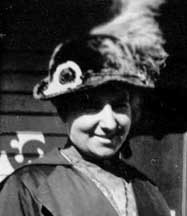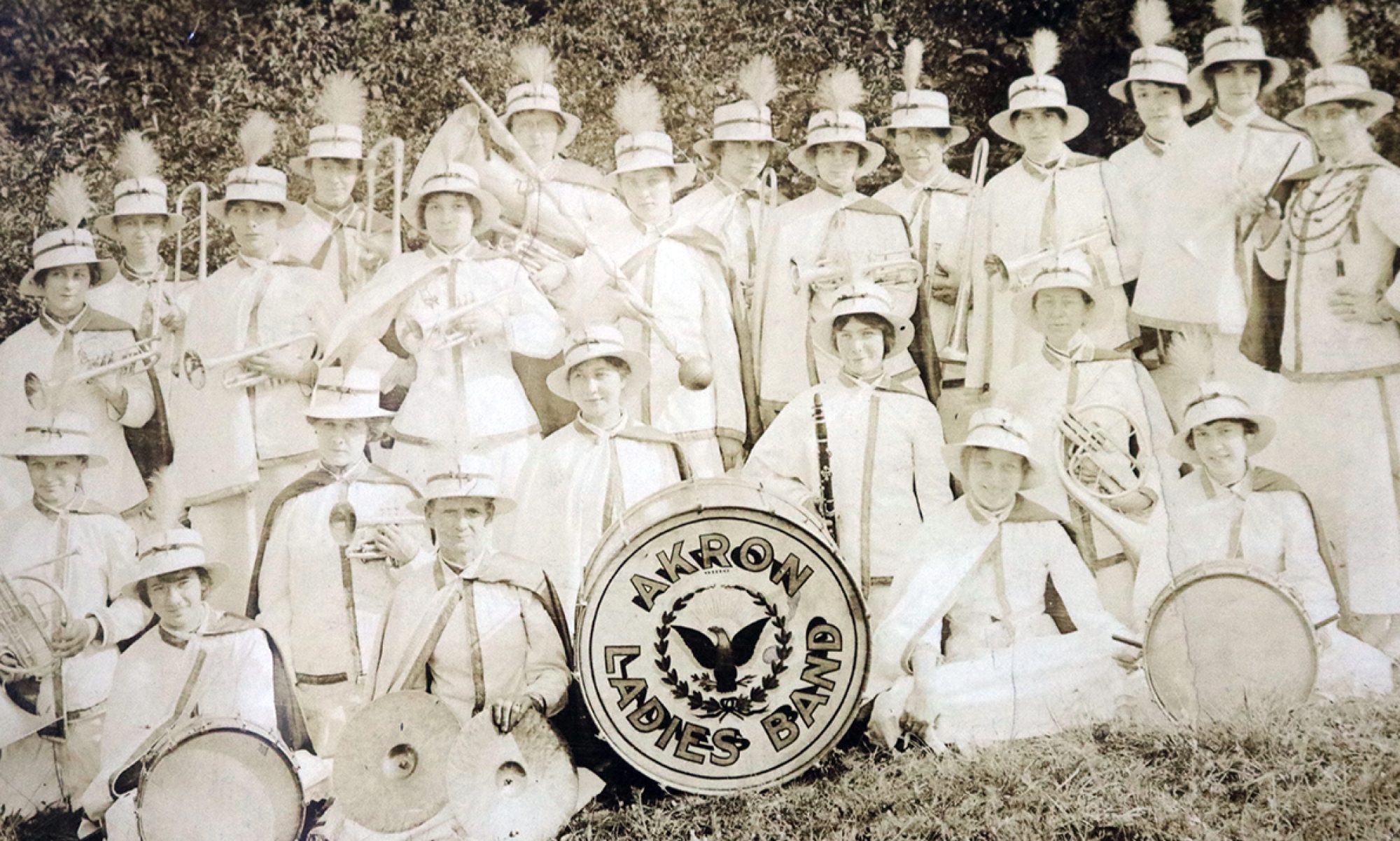
Chalista Willard Wheeler only lived in Akron, Ohio, for 16 years; but that was long enough for her to establish the city’s Young Women’s Christian Association (YWCA) and First Disciple Church’s Young Women’s Missionary Association.
Little is known about Wheeler’s activities before she came to Akron. She was born Chalista Willard and she married young banker David P. Wheeler in Cleveland in 1873. In 1893, the Wheeler family – David, Chalista, daughters Ruth and Jane, and son Willard – moved to Akron where David took over the management of Citizens’ Savings Loan Association. That financial institution was still reeling from the Panic of 1892. He put that institution’s financial matters in order and soon started a new bank – Citizens’ National Bank.
In the 1890s both Wheeler daughters were away at school, Hiram College, a small liberal arts institution in Northeastern Ohio. Both had affiliated with the YWCA there and they told their mother about the benefits of the organization personally and to employed women in general. The idea of starting a YWCA in Akron wasn’t new. For several years, Akron’s Council of Women had talked about the need for one, especially since more and more young women in the city were working outside the home. But nothing happened until November 1900 when Chalista Wheeler invited a small group of friends to her Fir Hill home to look into the prospect of starting a YWCA in Akron. Two strangers were at that meeting – Helen Barnes, national secretary of the YWCA, and Nellie Adams Lowry, the group’s state secretary. Under the tutelage and advice of these professional organizers, the Akron women quietly did research on the number of women employed in the city and canvassed for potential members.
By March 1901 they had their answers. Akron did indeed have a large pool of women working outside the home; and a large number of women -181 returned pledge cards – were interested in joining the YWCA. The charter membership read like a Who’s Who of Akron. It included wives and daughters of industrialists Seiberling, Manton, Schumacher, Andrews, Robinson and others. Wives and daughters of executives, bankers, attorneys, city officials and college professors signed on. No one Protestant denomination predominated but one socio-economic class did. Wheeler had enlisted the wealthiest, most widely respected women in the city to support the YWCA. On March 25, 1901, the Akron YWCA held its first meeting at the First Congregational Church and Wheeler was elected president. Wheeler provided the leadership during those first years. According to a memorial issued at the time of her retirement from the YWCA, Wheeler was the key to the organization’s success. “The work succeeded from the first for Mrs. Wheeler was wise in seeing that such an organization would supply a long felt want and because at its head was placed a woman in whom the public had implicit confidence not only as to business ability, but also as to her judgment as to the influences that go to strengthen womanhood.”
Between 1901 to 1909, Wheeler served as president, setting up the association’s first “rooms,” hiring the first general secretaries (for a time daughter Ruth Wheeler served in that capacity), and supervising the growing number of programs being offered the women in the city. She did this even as she faced personal tragedies. Her husband was electrocuted in his bank on Christmas Day. She did this even as she faced her responsibilities at the First Disciple Church (now High Street Church of Christ). Wheeler had started and served as president of the Young Women’s Missionary Society (which became the Ella Thompson Missionary Society).
In 1909, she resigned from the YWCA and moved away to care for her mother, who was ill.
Photo courtesy of the YWCA of Summit County.
–Kathleen L. Endres
